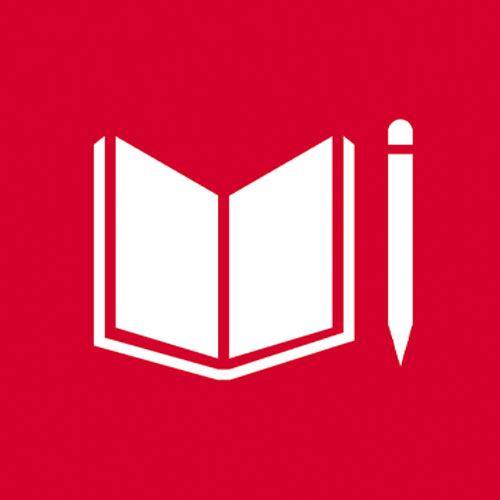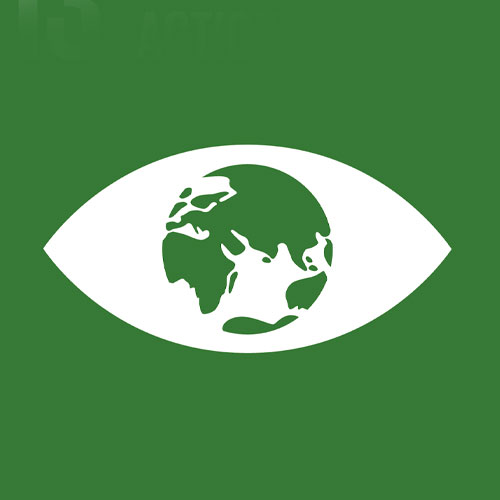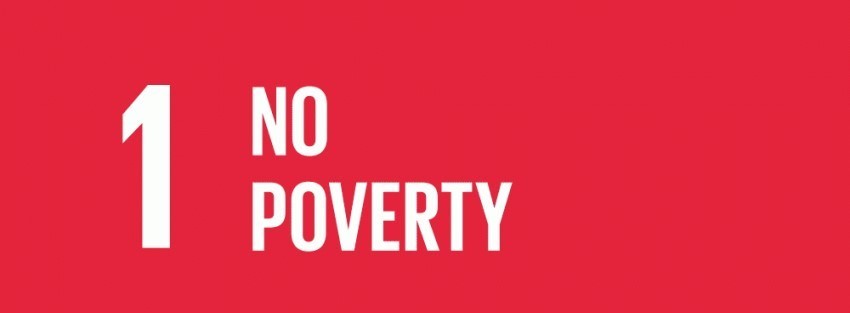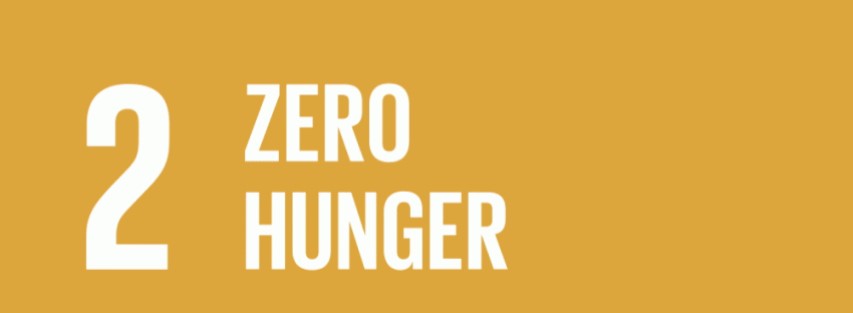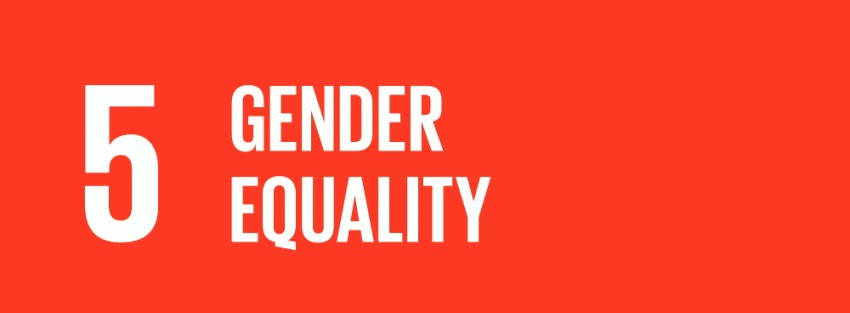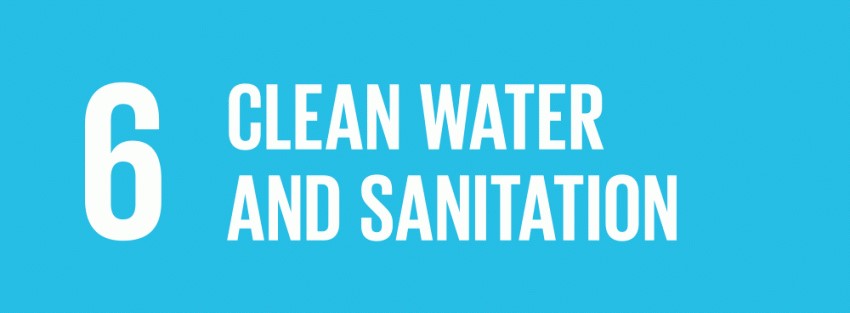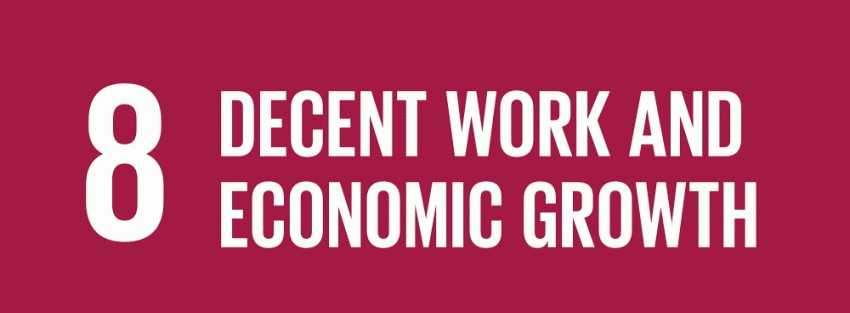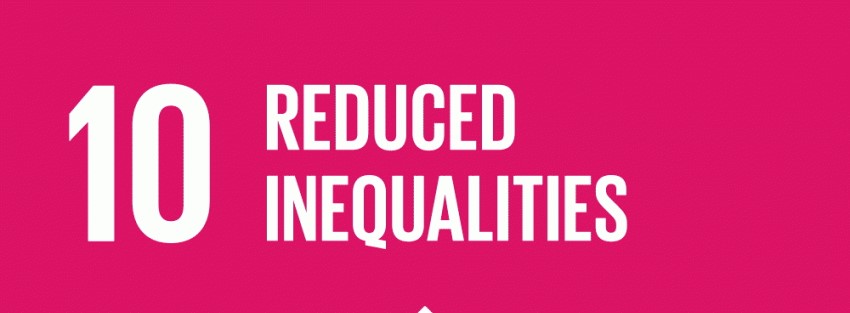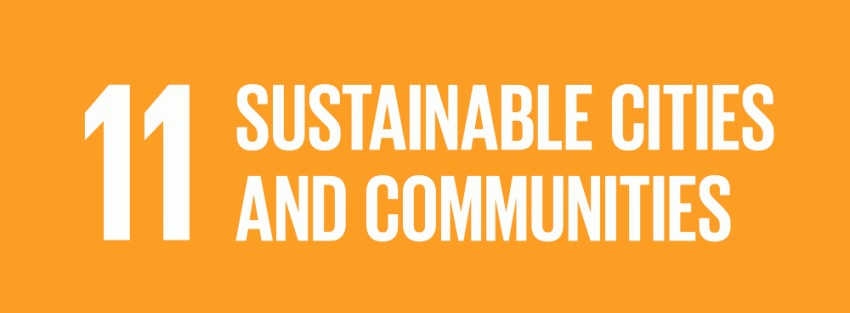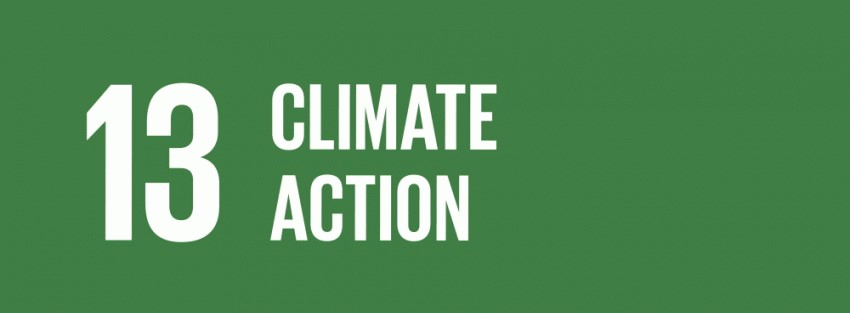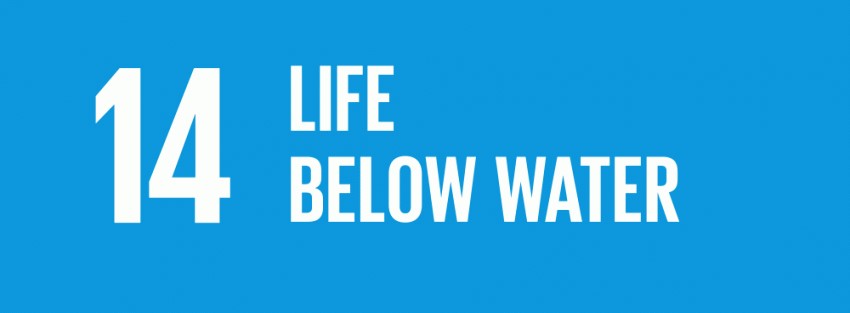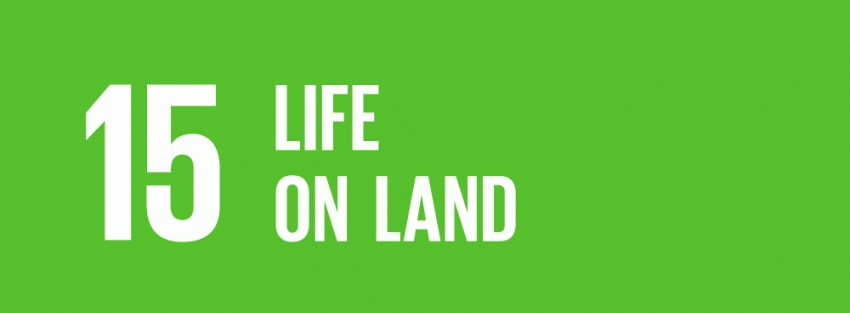SDG 16.2.5
Publication of the university's principles and commitments on organized crime, corruption & bribery
16.2.5 Does your university as a body have a publication of the university's principles and commitments on organized crime, corruption & bribery?
Anti-bribery and Corruption Policy
https://www.adu.ac.ae/sustainability/governance/anti-bribery-and-corruption-policy
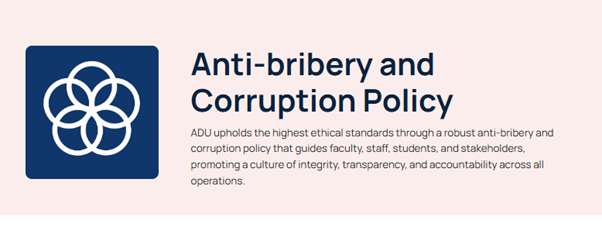
Anti-bribery and Corruption Policy
Abu Dhabi University (ADU) holds a steadfast commitment to upholding the highest ethical standards and promoting a culture of integrity, transparency, and accountability in all its operations. Central to this commitment is ADU's robust anti-bribery and corruption policy, which serves as a cornerstone of the university's governance framework and guides the behavior of faculty, staff, students, and stakeholders.
Abu Dhabi University (ADU) maintains a robust stance against bribery and corruption, adhering to stringent policies and procedures designed to prevent, detect, and address any instances of unethical behavior within its operations. As an institution committed to upholding the highest standards of integrity and transparency, ADU recognizes the detrimental impact that bribery and corruption can have on academic integrity, institutional reputation, and societal trust.
At the core of ADU's approach to combating bribery and corruption is the implementation of comprehensive policies and guidelines that outline clear expectations and responsibilities for faculty, staff, students, and external stakeholders. These policies are regularly reviewed and updated to align with international best practices and legal requirements, ensuring that ADU remains vigilant in its efforts to mitigate the risk of corruption across all areas of its activities.
Policy
Anti-bribery and Corruption Policy at Abu Dhabi University, we fervently support and uphold the values of honesty, openness, and accountability in all of our operations. Our institutional culture and operational behavior are guided by these fundamental values. These ideals are demonstrated through our Anti-bribery and Corruption Policy, which is a cornerstone policy at Abu Dhabi University.
Objective of the Anti-bribery and Corruption Policy
This policy's main goal is to unequivocally proclaim our opposition to bribery and corruption in all of its manifestations, in accordance with national laws, international anticorruption treaties, and best practices in higher education institutions. The goal of the policy is to establish an ethically and legally sound working and learning environment.
Scope of the Policy
Within our academic community, the Anti-bribery and Corruption Policy is applicable to everyone. This indicates that it covers all employees, students, contract workers, consultants, vendors, and other people or organizations working for Abu Dhabi University.
The policy is thorough and covers a number of critical topics linked to combating bribery and corruption:
- Definition and Understanding of Bribery and Corruption:
To help members of our community understand and recognize these behaviors, the policy clearly defines what constitutes bribery and corruption and offers examples from real-world situations.
- Prohibition of Bribery and Corruption Acts:
The law forbids any acts that can be construed as bribery or corruption. Included in this are dishonest gifts and favors, facilitation fees, theft, fraud, and money laundering.
- Reporting Mechanism:
To encourage a culture of vigilance among our community members, this section describes the processes in place for reporting suspected cases of bribery or corruption. It guarantees complete confidentiality and protection from reprisals for anyone who report such instances.
- Investigation Procedures:
This section describes how to undertake exhaustive, unbiased inquiries into the claims after a report has been filed.
- Consequences of Violation of the Policy:
The policy clearly explains possible legal and disciplinary repercussions for people or organizations found responsible for bribery or corruption.
- Training and Awareness:
The emphasis of this part is on our dedication to holding frequent training and awareness events to inform our community about the policy and the moral principles it promotes.
- Policy Review:
To ensure that our anti-bribery and corruption policy is effective, current, and compliant with both domestic law and international best practices, it is constantly reviewed and revised. This policy has been reviewed and revised most recently, in 2022, thus it satisfies the criterion of having been reviewed within the last three years.
Abu Dhabi University’s Office of Academic Integrity ensures quality of education
https://www.albawaba.com/business/pr/abu-dhabi-university-education-544568
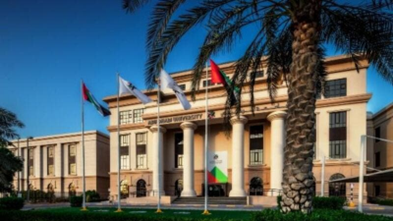
Living up to its reputation of providing an education of international quality, Abu Dhabi University’s Office of Academic Integrity (OAI) has achieved a new record in dramatically reducing the number of academic violations on both Abu Dhabi and Al Ain campuses since its inception in 2009. As a result of the concerted efforts of the OAI to stress the importance and educate ADU students about the significance of academic integrity in relation to the quality of their education and international recognition of their degree, academic violations including cheating, plagiarism and collusion have been reduced from 334 violations in the academic year 2009 -2010 to 48 violations in the academic year 2012- 2013, confirming the University’s commitment to world-class standards of its educational outcomes as do most prestigious institutions of higher education around the world.
Commenting on the importance of combating academic misconduct, Dr. Nabil Ibrahim Chancellor of Abu Dhabi University explained that since its inception in 2003, the University had academic integrity policies in place that encouraged students, staff and faculty to maintain the highest standards of integrity and transparency, on both the professional and personal level. “In 2009, the Office of Academic Integrity was established to develop a clear foundation and implement policies and regulations that combat, regulate and respond to academic violations, especially with Abu Dhabi University’s ongoing commitment to improving the quality of academic performance and apply all aspects of academic integrity as a major part of its strategy. With its establishment, the Office of Academic Integrity issued documents and policies that spread awareness and clarified its educational role in combating academic offenses and defined the different sanctions that depend on the severity and type of violation which could in some cases lead to dismissals as the most egregious type of academic integrity violation”, added Dr. Ibrahim.
“We continuously strive to spread awareness and educate our students on the importance of committing to acts that uphold academic integrity, we want them to be honest regardless of whether someone is watching them or not. The OAI also organizes several workshops, awareness campaigns and visits to lecture halls and classrooms on both University campuses with the beginning of each semester, to educate newly admitted students and remind returning students of the violations they might commit if unaware of the penalties and damages the penalties that result from them, including affecting the reputation of their degree since higher education results are insignificant once they’re gained through dishonest means. Faculty are also educated and trained on how to uncover cases of plagiarism through a specific software program used by ADU for this purpose”, said Dr. Ibrahim. He asserted that Abu Dhabi University doesn’t and will not compromise when it comes to standards of academic integrity, especially since its main aim is to graduate qualified cadres equipped with the greatest academic and professional ethics to become the best ambassadors of Abu Dhabi University in the labor market.
Dr. Ibrahim explained that the Office of Academic Integrity has succeeded in reducing violations related to cheating from 76 cases out of a total of 4237 students enrolled at the University during the academic year 2009-2010, to 19 cases out of 5184 students enrolled at ADU in the academic year 2012 -2013. Furthermore, plagiarism cases have dropped from 196 cases in the year 2009 - 2010 to only 4 cases in the academic year 2012-2013.
On his part, Dr. Ali Azad Director of ADU’s Al Ain Campus and Interim Head of the Office of Academic Integrity pointed out that since the inception of OAI spreading awareness in the student community on the importance of academic integrity principles has been one of its main activities, in an effort to reduce the rates of academic violations drastically with each semester. He explained that the OAI has managed to achieve its goals through education, counseling and following up with students. A number noteworthy of mentioning is the drop in the number of students who have been dismissed for cheating from 28 cases in the year 2009 to 2010 to 14 cases in the academic year 2012-2013.
Workshop: Anti-Financial Crime
https://www.adu.ac.ae/home/2022/04/19/default-calendar/workshop-anti-financial-crime
Join us to learn more about financial crimes like Anti-Money Laundering (AML), Anti-Terrorist Financing, Anti-Corruption, Compliance, Sanctions, Anti-Fraud, Anti Bribery and Investigations.
Beware of Fake Websites
https://www.adu.ac.ae/news-and-events/news/news/detail/2019/03/03/beware-of-fake-websites
From time to time, fraudsters attempt to steal the identity of Abu Dhabi University (ADU) through setting up fake websites or email accounts. Please remain vigilant and ensure that any website link you are directed to is the genuine ADU website–www.adu.ac.ae. ADU only uses this website and all its email addresses end in @adu.ac.ae.
Examples of recent fake websites are http://aduac.com and www.abduaea.com. Please do not send any personal information, follow links, respond to job offers or send money to such sites. If in doubt about the authenticity of a website, link or email, please call ADU on 800-23968 or send an email to ITHelpdesk@adu.ac.ae.
Remember – if an offer seems too good to be true, it probably is. Use common sense:
• Do not respond to unsolicited recruitment offers from sources you cannot independently verify as being legitimate
• Do not provide personal or financial details to anyone you do not know or trust, or on a website you do not trust
• Be alert for suspicious signs including:
- poor use of language
- use of e-mail addresses like yahoo.com, gmail.com, hotmail.com
- contact through social websites such as Facebook etc.
Please notify us of any suspected scams by emailing ITHelpdesk@adu.ac.ae.
Anti-Corruption in the United Arab Emirates
https://www.globalcompliancenews.com/anti-corruption/anti-corruption-in-the-united-arab-emirates/
1. Domestic bribery (private to public)
1.1 Legal framework
At present, the United Arab Emirates (UAE) has no comprehensive anti-corruption legislation. Specific provisions dealing with anti- corruption and bribery (directly or indirectly) are, however, included in a number of federal and local laws, including the UAE Federal Law No. 3 of 1987 (as amended) (the “Penal Code”); the UAE Federal Law No. 21 of 2001 concerning Civil Service; the Dubai Government Human Resources Management Law No. 27 of 2006; and the Abu Dhabi Law No. 1 of 2006 concerning Civil Service in the Emirate of Abu Dhabi (the last three laws are collectively referred to as the “Civil Service Laws”).
1.2 Definition of bribery
The definition of bribery can be culled from several articles in UAE legislation, notably the Penal Code. Under the provisions of the Penal Code, bribery would be anything that confers a benefit on a public or private sector employee, as the case may be, with the intent to influence such employee to act in a way that violates the duties assigned to his or her function, or to commit or abstain from doing an act.
1.3 Definition of public official
With regard to the definition of a public official, Article 5 of the Penal Code provides that: “Shall be considered a public official under this Law any person employed at a federal level or a local level in any legislative, executive, administrative or judicial role, whether appointed to elected:
- Anyone charged to do the works of the main authority and the people in the ministries and governmental departments
- Members of the armed forces
- Employees in security authorities
- Members of the judicial authority, heads of legislative councils, advisory councils and municipalities council and their members
- Any person delegated by a public authority to perform a specific job within the limits of the assigned job
- Chairmen, directors and managers and all employees of public authorities and public corporations and companies totally or partially owned by a federal or a local government
- Chairmen, directors and managers and all employees in public associations and establishments with public benefits
Shall also be considered, under this Law, as entrusted with a public service, any individual who does not belong to any of the categories mentioned in the preceding clauses and who performs a job relating to public service by virtue of a mandate given to him by a public officer who is authorized to do so according to the laws and regulations, provided that said individual shall be considered as a public officer only within the limits of the job assigned to him.”
(a) For the individuals involved
Depending on the severity of the crime, any public official who is found guilty of a bribe-related crime (offering or accepting or promising) would be subject to a fine equivalent to the benefit accepted by them (provided the fine is not less than AED 5,000); confiscation of the actual benefit accepted; and depending on the circumstances of each case, imprisonment not exceeding five years. In addition, individuals who are found guilty of accepting a bribe in exchange for exerting their influence over a public official would be subject to imprisonment of up to five years.
(b) For the company/legal entity
Entities may also be held liable to the extent that their “inaction,” either when aware or unaware of the bribery activities, resulted in the facilitation of the bribery in question. Article 65 of the Penal Code provides that corporate persons are liable for any criminal act committed, for their account or in their names by their representatives, directors or agents. In such case, the court may only impose upon the corporate person fines, confiscations and other criminal measures provided under the law. However, if the criminal sanction entails other principal sanctions in addition to a fine, only the fine (not exceeding AED 500,000) will apply. The foregoing applies without prejudice to any other special law that prescribes different sanctions.
Civil liability under Civil Transaction Law No. 5 of 1985 discusses the vicarious liability of the employer in this regard.
Despite the provisions discussed earlier, in practice, courts review cases on a case-by-case basis and penalize the liable employee/entity accordingly. In this regard, the Public Prosecutor employs wide discretion, which can lead to inconsistency in enforcement and penalties imposed.
1.5 Political contributions
There are no political parties in the UAE and public officials are appointed by either the government itself or by the rulers of each emirate (ass the case may be).
1.6 Limitation applicable to hospitality expenses (gifts, travel, meals, entertainment, among others)
There is no statutory benchmark for business courtesies in the UAE. However, when offering business courtesies to public officials, the following factors should be considered carefully:
(i) The value of such business courtesies
(ii) The frequency with which they are offered
(iii) The intention behind offering them
(iv) The relevance of such gifts/hospitalities to both the recipient and the offeror
Business courtesies benefiting the recipient exclusively are more likely to be considered improper. On the other hand, a business courtesy that is connected with the company’s core business and the function of the relevant official, such as provision of relevant training, is likely to be considered as acceptable. By way of example, if provided in connection with a demonstration or training program, paid travel expenses, unless excessive in value, would unlikely be considered improper. Similarly, paying the fees to attend a third-party conference would not likely be considered improper if connected with the functions of the relevant official (although in such cases, we would ordinarily recommend that the invitation to attend be addressed through the competent organizational unit at the relevant ministry or government agency). Meals, if provided as basic sustenance during a business meeting and unless excessive in value, would unlikely be considered improper.
Promotional items bearing the emblem or logo of the company would be more justifiable than unbranded items, provided that such items offered are not excessive in value. On the other hand, entertainment (golfing, concert, sporting events, among others) is less likely to be acceptable, as this would be difficult to justify as being connected with the functions of the relevant official.
In any event, it should be noted that it is preferable for any invitation to participate in an event that includes payment of business courtesies to not be addressed to the official benefiting from such courtesies but to his or her manager/supervisor/team head who will appoint a direct beneficiary or provide approval
According to the Civil Service Laws, the acceptance, taking, offering and requesting of bribes is prohibited. Under these laws, government employees should not accept any gifts (as opposed to bribes) unless they are symbolic advertising or promotional gifts bearing the name and emblem of the entity presenting them, and each ministry must define the organizational unit allowed to accept gifts on its behalf in accordance with its regulations and standards.
Finally, pursuant to the Code of Professional Conduct and Ethics for Public Servants (Cabinet Resolution No. 15 of 2010), a public servant (or any relative up to the fourth degree) may not accept any gifts, hospitalities or services from any person if it results in any obligation; if it has a direct or indirect effect on the public servant’s objectivity in implementing his or her duties; if it might affect his or her decisions; or if it might make him or her subject to obligations in consideration of what he or she accepted.
2. Domestic bribery (private to private)
2.1 Legal framework
As stated previously, the UAE has no comprehensive anti-corruption legislation. Specific provisions dealing with anti-corruption and bribery (directly or indirectly) in the private sector are mainly found in the Penal Code.
2.2 Definition of private bribery
In relation to acts of bribery committed by individuals in the context of the private sector, Article 236 bis of the Penal Code states that only the individual who requests, accepts or promises a bribe (benefit), in exchange for committing or omitting an act in violation of the duties of his or her position would be guilty of an offense under the Penal Code. The recipient, in this instance, is defined by the Penal Code as any manager or employee of a private sector company.
2.3 Consequences of private bribery
(a) For the individuals involved
Individuals who request, accept or promise bribes in the private sector would be subject to a fine equivalent to the benefit accepted by them (provided the fine is not less than AED 5,000), confiscation of the actual benefit accepted, and imprisonment not exceeding five years.
Article 236 bis of the Penal Code has been amended by virtue of Law No. 7 of 2016 to facilitate the prosecution of bribery in the private sector, such that the offeror of a bribe would also be guilty of an offense.
(b) For the company/legal entity
Entities can also be held liable to the extent that their “inaction,” either when aware or unaware of the bribery activities, resulted in the facilitation of the bribery in question. Article 65 of the Penal Code provides that corporate persons are liable for any criminal act committed, for their account or in their names by their representatives, directors or agents. In such case, the court may only impose upon the corporate person fines, confiscations and other criminal measures provided under the law. However, if the criminal sanction entails other principal sanctions in addition to a fine, only the fine (not exceeding AED 500,000) will apply. The foregoing applies without prejudice to any other special law that prescribes different sanctions.
Civil liability under Civil Transaction Law No. 5 of 1985 discusses the vicarious liability of the employer in this regard.
Despite the provisions discussed earlier, in practice, courts review cases on a case-by-case basis and penalize the liable employee/entity accordingly. In this regard, the Public Prosecutor employs wide discretion, which can lead to inconsistency in enforcement and penalties imposed.
2.4 Limitation applicable to hospitality expenses (gifts, travel, meals, entertainment, among others)
See Section 1.5.
3. Corruption of foreign public officials
The new amendment to the Penal Code penalizes corruption of public officials of other countries. The UAE has also ratified the United Nations Convention against Corruption and does abide by its rules, although it did not produce separate legislation to complement the said convention.
4. Facilitation payments
The new amendment to the Penal Code prohibits the corruption of public officials of other countries. The new amendment imposes penalties on foreign public officials and employees of international organizations who request, accept or promise directly or indirectly a benefit/bribe for himself/herself, or for another person or entity to carry out an act or refrain from such act. The UAE has also ratified the United Nations Convention against Corruption and does abide by its rules, although it did not produce separate legislation to complement the said convention.
5. Compliance programs
5.1 Value of a compliance program to mitigate/eliminate the criminal liability of legal entities
UAE laws do not regulate compliance programs.
5.2 Absence of compliance program as a crime
N/A
5.3 Elements of a compliance program
(a) Legal framework
UAE laws do not regulate compliance programs.
(b) Recommended practice
Despite the lack of heavy regulation in relation to the requirement/method that will be used in implementing compliance programs, many international, national and governmental authorities implement a transparent compliance program. This is the case largely because the benefits of having a compliance program system outweigh the risks associated with not adopting one. In many corporations and governmental entities, it is a core policy and part of a wider corporate governance program. Such provisions convey transparency, enabling governmental authorities, companies and senior officers in organizations to have a clear picture of what is going on within the respective entity. Such programs are also commonly used as a preventive mechanism within governmental or corporate structures to combat wrongdoing internally in order to avoid potential violations (such as breaches of international regulations that maybe applicable to multinational companies even when the local UAE laws are not sufficiently incriminating) from happening, in addition to allowing them to be in a position to report and expose such wrongdoing.
6. Regulator with jurisdiction to prosecute corruption
The Public Prosecutor has the power to prosecute bribery cases before the UAE courts, with jurisdiction over such matters, among many others.
ABU DHABI UNIVERSITY HOSTS INTERNATIONAL DAY TO CELEBRATE DIVERSITY, PROMOTE TOLERANCE
Home to more than 82 different nationalities, ADU aims to spread a culture of tolerance and inclusivity in line with the Year of Tolerance.
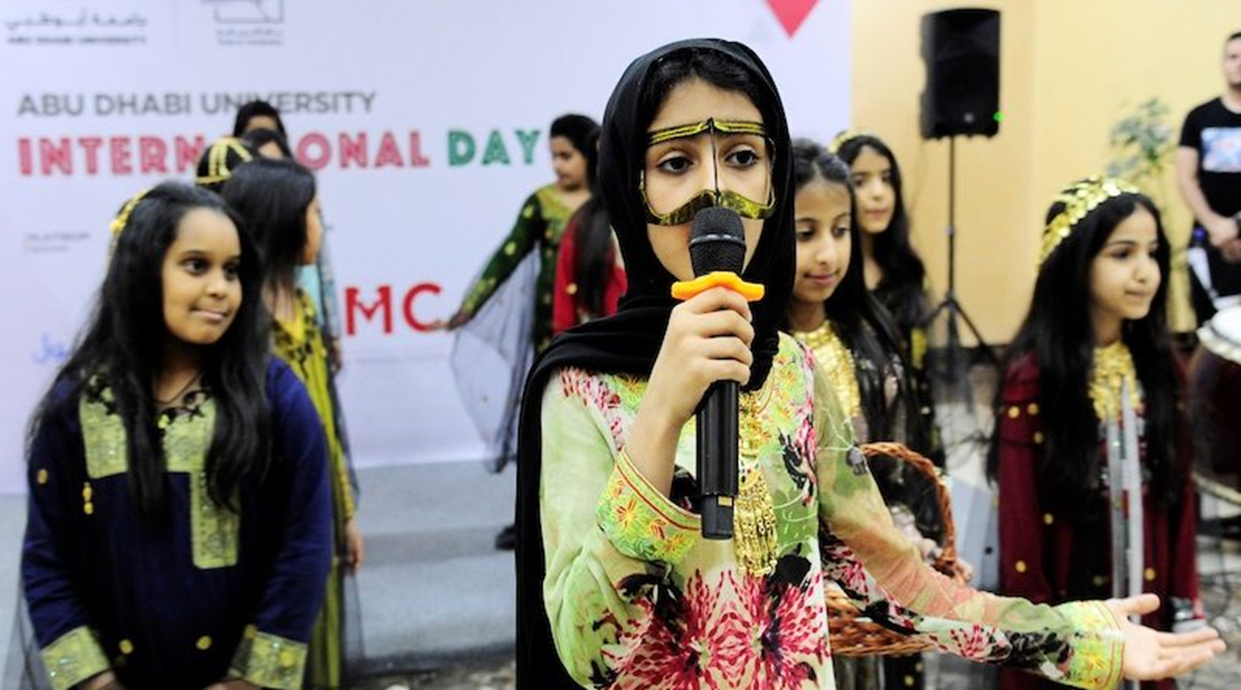
March 24th, 2019, Abu Dhabi (UAE): As part of its efforts to spread a culture of tolerance and inclusivity in line with the Year of Tolerance, Abu Dhabi University (ADU) hosted an International Day for the ADU community to celebrate diversity and promote exchange and understanding between different nationalities.
With more than 14 different countries joining the celebrations, the event featured a mix of eclectic culinary traditions, cultural performances infused with folk music and traditional dress, as well as an array of internationally themed booths. A renowned Emirati-Japanese Kharsha Drums group performed at the event and captivated audiences with a unique fusion performance that combined elements from the Emirati and Japanese cultures in a distinctive musical expression.
Professor Waqar Ahmad, ADU’s Chancellor, commented, “We strive to follow into the footsteps of our wise leadership who have firmly established the UAE as a promoter of peace and symbol of tolerance, the enduring value of this year’s theme. At ADU, we are proud to be home to over 82 different nationalities who live harmoniously in our rich and culturally diverse environment. This initiative aims to promote a dialogue between cultures and engage the ADU community in learning more about other traditions and values to expand their knowledge of the world in line with the Year of Tolerance.”
The event saw the participation of faculty and staff in addition to Alliance Française (AF), an international organization that promotes French language and culture around the world.
The festivities included themed booths showcasing a striking mix of cultures from India, Palestine, Syria, Jordan, Lebanon, Ireland, UAE, Japan, Sudan, Philippines, Korea, Egypt, China, and France. During the festival, four awards were presented to faculty members and their affiliated booths in different categories including ‘best dressed’, ‘best cultural dish’, ‘best decorated booth’ and ‘best dance performance’. This initiative is one of many planned this year to celebrate the Year of Tolerance.
The university currently has more than 7,600 students across its bachelor’s, diploma, master’s and PhD programs at its campuses in Abu Dhabi, Dubai, Al Dhafra and Al Ain. Students at ADU represent over 82 different nationalities enrolled in 44 academic programs, all of which enjoy global academic accreditation. The growing multi-cultural student base is divided into 29 undergraduate and 15 postgraduate programs, with over 15,000 graduates working in the UAE and abroad.
About Abu Dhabi University (ADU)
Abu Dhabi University is a private, multi-campus University committed to meeting the education, skills and knowledge needs in the United Arab Emirates and neighboring countries through qualifications and standards that are respectedacross the world.
Although young, the University is recognizedas a world-class institution committed to excellence in teaching, student experience, research andcorporate education. We are regularly featuredin the Quacquarelli Symonds (QS) rankings as among the best higher education institutions in the region. We hold prestigious international accreditations for the institution as a whole, for particular fields of provision and forspecific programs. We were the first private higher education institution in the UAE and the GCC region to earn international accreditation from the Californian Western Association of Schools and Colleges (WASC). ADU’s College of Business holds international accreditations from the Association to Advance Collegiate Schools of Business (AACSB) and the prestigious EFMD Quality Improvement System (EQUIS). Only 1% of business schools worldwide have this double accreditation. In addition, its College of Engineering has earned accreditation from the world-renowned Engineering Accreditation Commission (EAC) and the Computing Accreditation Commission (CAC) of the Accreditation Board for Engineering and Technology (ABET). It houses the only architecture program to hold accreditation by the Royal Institute of British Architects (RIBA).
According to the QS World Universities Rankings, ADU ranks in the top 701-750 universities worldwide, the top 150 leading institutions under 50 years, the top 27 universities in the Arab World, and the top 6 in the UAE. Being rated 3rd globally for international faculty and 10th for international students, we consider diversity to be among our key strengths.
Established in 2003, Abu Dhabi University has over 7,500 students from over 80 nationalities across its four campuses and sponsored programs. Structured into Colleges of Arts and Sciences, Business, Engineering, Law and the University College, we offer undergraduate and graduate programs across arts, law, education, business and management, engineering and sciences, including to Etihad pilots, trainees and personnel of the UAE military. Alongside the well-established campuses in Abu Dhabi and Al Ain, we have launched a new campus in Dubai Knowledge Park and recently opened a teaching facility in the Al Dhafra Region of the Abu Dhabi Emirate. In addition, a brand-new state-of-the-art campus is planned to open in Al Ain in September 2019.
ADU Among Top Ten Arab Universities for Faculty and Student Diversity
Abu Dhabi University (ADU), an internationally recognized academic institution for quality education and applied research, has been named among the top 10 Arab Universities for faculty and student diversity according to the 2020 QS Arab Region University Rankings, ranking 7th in the Arab Region for International Faculty, 8th for International Students with over 80 nationalities.
Abu Dhabi University (ADU), an internationally recognized academic institution for quality education and applied research, has been named among the top 10 Arab Universities for faculty and student diversity according to the 2020 QS Arab Region University Rankings, ranking 7th in the Arab Region for International Faculty, 8th for International Students with over 80 nationalities.
ADU has also been named among the top 30 universities in the Arab world for the 6th year in a row since 2015, placing it among the top 17% of universities in the region, according to the 2020 QS Arab Region University Rankings. ADU now ranks 27th out of 131 universities, maintaining its ranking despite the addition of new entrants to the list.
ADU has also improved in positional rankings for Academic Reputation, Research Papers per Faculty, International Research Network and Web Impact. ADU is also 12th for Research Papers per Faculty. Academic Reputation has also risen 12 places since the 2019 QS Arab Region University Rankings.
In addition to the overall ranking, ADU also scored highly on several performance indicators including Faculty Members Holding a PhD, International Faculty and International Students, reflecting the university’s quality of faculty as well as its efforts to nurture a growing and diverse student population. ADU also scored highly on Employer Reputation, demonstrating its commitment to being one of the universities of choice among employers in the region.
Coinciding with the university celebrating 15 years of growth and excellence, ADU has achieved a better position than some of its much older and/or similar aged counterparts as affirmed by these prestigious rankings. This is a testament to ADU’s unwavering commitment to providing quality education.
“We are proud to again be recognized by the prestigious Quacquarelli Symonds organization as one of the 2020 Arab Region’s top 30 universities” remarked Professor Waqar Ahmad, Chancellor of Abu Dhabi University. “Our success can be attributed to a number of factors, including our top-quality internationally-qualified faculty, our challenging and rich academic curriculum, dynamic learning experiences that place students as co-creators and partners in directing their studies both inside and outside the classroom, and research informed teaching and learning, which allows students to apply their knowledge and skills to real world problems in the UAE and wider region. We are immensely proud of our graduates, who provide the best evidence of our institutional success.”
In conjunction with the UAE government’s vision to support innovation, information technology and development, ADU recently announced the expansion of its internationally accredited academic portfolio to include a unique range of bachelor’s programs in the engineering and health sciences streams. Engineering programs include biomedical engineering, cybersecurity engineering, industrial engineering and software engineering, in addition to urban planning (CAA accreditation pending). Health sciences programs include biomedical sciences (laboratory medicine), human nutrition and dietetics, and molecular and medical genetics in addition to the existing environmental health and safety and public health programs.
First published in 2014, the annual QS Arab Region University Rankings highlights leading universities in this part of the world. This year’s rankings were compiled by assessing universities on ten performance indicators including academic reputation, international research network, citations per paper and employer reputation.
ADU’s Tolerance Day celebrates tolerance and diversity in collaboration with the Department of Community Development
Abu Dhabi University organized ADU’s Tolerance Day in collaboration with the Department of Community Development as part their Year of Tolerance initiatives. Hosted by ADU, the 2-day event aimed to promote values of tolerance among students and ADU community and celebrate cultural diversity through various activities.
Abu Dhabi University organized ADU’s Tolerance Day in collaboration with the Department of Community Development as part their Year of Tolerance initiatives. Hosted by ADU, the 2-day event aimed to promote values of tolerance among students and ADU community and celebrate cultural diversity through various activities. Students of the Islamic Culture course under the supervision of the College of Arts and Sciences displayed numerous projects and activities reflecting the spirit of cultural diversity and positive moral values including games and fun activities that reinforce ethical values as well as interactive creative posters and artifacts. The event included an exhibition held by the Department of Community Development depicting the history of tolerance in the UAE by highlighting the existing places of worship in the Emirate of Abu Dhabi as well as a lecture entitled "Tolerance and National Identity in the Emirate of Abu Dhabi" by Dr. Mohammed Habash from the Department of Community Development, which stressed the co-relationship between the concepts of tolerance and national identity.Sustainable Development Goals (SDGs)
Abu Dhabi University is committed to becoming the best tertiary education institution of its kind in the region. We are a private, multi-campus university committed to meeting the education, skills and knowledge needs in the United Arab Emirates and neighbouring countries through qualifications and standards that are respected across the world.
01
No Poverty
Sustained economic growth cannot be achieved without social inclusion as the whole of society has a role to play in the development of a country. Federal Law No. 13 of 1972 and its amendments by the law (No.2) in 2001 was issued by the Ministry of Community Development.
Introduction
Sustained economic growth cannot be achieved without social inclusion as the whole of society has a role to play in the development of a country. Federal Law No. 13 of 1972 and its amendments by the law (No.2) in 2001 was issued by the Ministry of Community Development.
(MOCD) as the first law to provide social benefits to members of the community to ensure and sustain the high quality of living for all UAE citizens. The Ministry continues to work today on enhancing social inclusion for all members of society where social benefits are extended to cover twenty-one segments of the community.
The UAE government has a future vision to change the culture of social support from the current ‘social welfare’ model to ‘sustainable social development’ that encourages independence and growth of families across the UAE.
ADU is determined to overcome all challenges that ADU and our students might face as a result of the poverty. We continue to be dedicated to empowering and inspiring outstanding students to pursue their goals. Our scholarships and financial aid programs are available to all students who want to fund their academic programmes. We consider it our duty to provide equal opportunities to students interested in pursuing higher education, enabling them to contribute to society regardless of their financial situation.
In additional to financial aid, ADU scholarships are being provided to outstanding students, through seven main categories, including the Sheikh Hamdan Bin Zayed Scholarship, the President’s Scholarship, the University Scholarship, the Academic Scholarship, the Athletic Scholarship, the Alumni Scholarship, and the Family Tuition Waiver.
We take pride in attracting the brightest students in the UAE and offer them generous support, to excel in their studies. Our Scholarship and Financial Aid programmes are part of ADU’s corporate social responsibility and are influenced by the UAE’s great leadership. ADU is constantly finding pioneering and innovative ways to support and facilitate the needs of our students to help them achieve their academic degree.
Emirates Red Crescent and ADU Launch a Humanitarian Funding Campaign
Emirates Red Crescent and Abu Dhabi University recently launched the Education Support Campaign in coordination with Abu Dhabi Cooperative Society and Lulu Group International. Through this collaboration, ADU and Emirates Red Crescent will support disadvantaged students in their university studies, providing them with an opportunity for a successful educational journey. The campaign aims to raise 10 million dirhams, and students will benefit from these funds starting 24 November 2021 and for one year. (This activity is licensed by the Department of Community Development – Abu Dhabi, permit number 022).
Abu Dhabi Cooperative Society and Lulu Group International will aid the campaign by facilitating donations through their different points of sale. Community members will show their solidarity by donating valuable aid to students, starting at two dirhams.
Public donations will be accepted via text message through Etisalat and Du. Bank donations can be sent to Sharjah Islamic Bank - account number (11445518006), IBAN (AE350410000011445518006). Individuals can also donate through the link provided on the Emirates Red Crescent website (https://www.emiratesrc.ae/eduadu), with the donations ranging from ten dirhams to 1,000 dirhams.
H.E. Salem Al Rayes Al Ameri, Deputy Secretary-General for Local Affairs at Emirates Red Crescent, said, "Sponsoring students is one of the permanent and continuous programs within the initiatives of the Humanitarian and Development Authority. We continue to witness a high rate of response and generosity from sponsors and benefactors. These donations are considered a true embodiment and reflection of the authority's efforts to invest in empowering individuals and guiding them towards achieving their aspirations and fulfilling their dreams."
Al Ameri added, "The Authority acknowledges the important role it plays in preparing future generations for the responsibilities of tomorrow."
Al Ameri praised the existing cooperation between the Emirates Red Crescent and Abu Dhabi University, which seeks to support education and provide opportunities to disadvantaged students whose family circumstances prevent them from continuing their educational path. The cooperation embodies Abu Dhabi University's commitment to fulfilling its social responsibility, as well as its leading academic role in advancing science and education as the most important pillars of human development in the country. He also praised the role of the Abu Dhabi Cooperative Society and Lulu International Group in supporting the activities of the campaign.
Salem Mubarak Al Dhaheri, Executive Director of Community Relations at Abu Dhabi University, said, "Abu Dhabi University is proud of its strategic partnership with Emirates Red Crescent in launching the Education Support Campaign. The campaign aligns with Abu Dhabi University's mission to support students and allows us to share social responsibilities with the community. We are proud of the continuous cooperation and renewed partnership with Emirates Red Crescent in launching campaigns that carry a noble message and achieve a tangible and real impact on our society."
Al Dhaheri added, "Abu Dhabi University appreciates the role of the Abu Dhabi Cooperative Society, Lulu International Group, and all participating partners in supporting the campaign activities. Investing in our young people and building an educated generation capable of leading the continued development of our country is vital."
Abdul Majeed Al Khouri, the Executive Director of the Abu Dhabi Cooperative Society, commented, "Our participation in the Education Support Campaign confirms the depth of the decades-old relationship between the Abu Dhabi Cooperative Society and Emirates Red Crescent. With God's grace, it has gone beyond humanitarian work and now encompasses sustainability. We are proud of this pioneering partnership. The Abu Dhabi Cooperative Society has always sought to serve the community of the UAE and we continuously contribute to helping and supporting various sectors in Abu Dhabi and the other Emirates."
Al Khoori added, "The initiatives adopted by the Abu Dhabi Cooperative Society reflect our passion towards aiding societal struggles related to education. Abu Dhabi Cooperative Society has initiated partnerships with ministries and governmental institutions, such as the Ministry of Social Affairs and the Emirates Red Crescent, to create opportunities for those who dream of pursuing their educational journey. In the last few years, we doubled our efforts and developed initiatives that will allow us to serve our country and consolidate the concept of social responsibility. We are proud to be part of an institution that provides its students with an environment that values charitable work and social development while simultaneously providing high-quality education and academic qualifications that are respected worldwide."
Mr. Aboobakker TP, Director of LuLu Hypermarkets Abu Dhabi and Al Dhafra region, said, "This initiative embodies the belief and commitment of LuLu Group in the bright future of the UAE and the power of the Emirati youth to shape it."
"Education is one of the strongest building blocks for a nation's future, and LuLu Group is honored to share in raising valuable funding for needy students," he continued. "It empowers Emirati youth to contribute to their best potential and lead the future of the country. It is particularly timely that this campaign comes on the eve of the 50th anniversary of the UAE's nationhood. We at LuLu Group International are proud of our identity as a 'homegrown' UAE brand and see this participation in the 'Let's Support Their Future' campaign as our humble contribution to the nation that gave us so much to build upon."
Sustainable Development Goals (SDGs)
Abu Dhabi University is committed to becoming the best institution of its kind in the region. We are a private, multi-campus university committed to meeting the education, skills and knowledge needs in the United Arab Emirates and neighbouring countries through qualifications and standards that are respected across the world.




